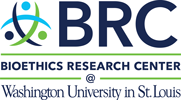TRISTAN MCINTOSH, PHD

TRISTAN MCINTOSH, PHD
Assistant Professor of Medicine
314-454-8164
T.MCINTOSH@WUSTL.EDU
TRISTAN MCINTOSH is an Assistant Professor of Medicine in the Bioethics Research Center at Washington University School of Medicine in the Division of General Medical Sciences. Dr. McIntosh earned her Master’s and PhD in Industrial-Organizational Psychology with a minor in Quantitative Psychology at the University of Oklahoma, where she specialized in ethical decision-making, innovation, and leadership. Currently, Dr. McIntosh leads federally-funded and foundation-funded research on ethical, professional, and social issues in science and medicine that arise at individual, team, and institutional levels.
Her research spans three primary domains: 1) the responsible conduct of research, including the creation of supportive research environments to support scientific excellence, 2) neuroethics, including responsibly navigating industry-academia partnerships in the development and commercialization of brain technologies, and 3) preventing and responding to egregious wrongdoing by physicians, with special emphasis on the role of state medical boards. Dr. McIntosh also has expertise in designing, delivering, and assessing educational programming on the aforementioned topics. She is the co-director of Compass, a leadership and management training and mentoring program for early-career researchers, and serves on the editorial boards of Accountability in Research and Ethics & Behavior.
SELECTED HONORS & AWARDS
- 2023 Journal of Medical Regulation Award for Distinguished Scholarship
RESEARCH SUPPORT – SELECTED CURRENT PROJECTS
Greenwall Foundation, Bridging Bioethics Research & Policymaking
McIntosh, PI 10/01/2023-09/30/2024
Protecting the Public from Bad Actors in Medicine: A Policy Change Workshop for State Medical Boards.
The goal of this project is to partner with the Federation of State Medical Boards to design and host an intensive and practical workshop for members and staff of State Medical Boards. The workshop will involve developing individual board action plans for implementing policy recommendations to better protect the public from egregious wrongdoing by physicians.
Role: PI
1R01MH130519 McIntosh, PI 06/01/2022 – 5/31/2026
NIH/NIMH
Fostering Ethical Neurotechnology Academia-Industry Partnerships: A Stakeholder Engagement and Toolkit Development Project
Industry-academia (IA) partnerships are critical for bringing brain technologies to market for public benefit. Brain technologies present unique ethical challenges compared to other health innovations: they can change brain function and record and transmit brain activity. Competing priorities and values between academia and industry and competing internal missions within academia raise the need to rethink existing guidance governing IA brain technology partnerships. We will conduct in-depth interviews with diverse stakeholder groups and work with stakeholders to establish consensus about promising solutions and actionable guidance for navigating ethical complexities, mitigating risk, and balancing scientific values with fiduciary goals.
Role: PI
National Institute of General Medical Sciences Antes, PI 08/01/2021-07/31/2026
Program for Advancing Early-Career Researcher Excellence through Leadership and Management Practices.
This project seeks to build a collaborative digital learning experience for early-career researchers to develop skills for implementing scientific leadership and management best practices.
Role: Co-Investigator/Program Co-Director
National Science Foundation McIntosh & Antes, Co-PIs 09/01/2020-08/31/2024
Advancing the Use of Professional Decision-Making Strategies in a Culturally Diverse Research Community.
This project will explore how researchers from East Asia and the United States approach professional challenges in the research workplace. The key aim of the project is to discover how the cultural background of researchers shapes their decision-making strategies. Unearthing shared and distinct approaches to challenges in research settings will inform revisions to responsible conduct of research (RCR) curriculum for scholars at Washington University that focuses on imparting decision strategies. This research will advance the research community’s understanding of cultural influences on researchers’ decision-making and foster a more culturally inclusive approach to RCR education.
Role: PI
1R01MD014161-01 DuBois & Mohan, Co-PIs 07/01/2019 – 2/13/2024
NIH/NIMHHD
Identifying and Exploring Solutions to the Ethical Challenges of ApoL1 Testing of Donors with Recent African Ancestry through Mixed Methods Research with Stakeholders
African Americans in the United States have a higher incidence of end-stage kidney disease than the general population; much, but not all, of this excess risk is attributed to variants in the ApoL1 gene. We will conduct surveys and interviews with individuals who are undergoing ApoL1 testing in the context of a larger organ transplantation research study (APOLLO) in order to explore ethical and social issues. We will work with a diverse panel of stakeholders to establish a consensus on key clinical practices surrounding ApoL1 testing in the context of organ transplantation.
Role: Co-Investigator
5U01DA055367-02 Rogers & Bogdan, Co-PIs 09/30/2021 – 06/30/2026
NIH/NIDA
23/24 Healthy Brain and Child Development National Consortium
Project Narrative Various adverse and protective environments may affect child development. The Healthy Brain and Child Development National Consortium (HBCD-NC) will follow 7,500 mothers and their children from 24 locations across the U.S. from before birth to 10 years of age to better understand which harmful and protective environments exert the greatest impact on child development. This study will help to improve the health and development of children across the nation.
Role: Ethics Workgroup Liaison
RESEARCH SUPPORT – SELECTED PAST PROJECTS
Greenwall Foundation, Making a Difference Program McIntosh, P 07/01/2019-06/30/2021
Helping State Medical Boards Effectively Protect Patients by Identifying and Promulgating Promising Practices and Essential Resources.
The goal of this project is to obtain expert consensus from members of State Medical Boards on practices, resources, and provisions needed by boards to protect the public when physicians engage in egregious wrongdoing, and develop model provisions with expert legal commentary that can provide guidance to states in designing or amending relevant state medical practice acts.
Role: PI
National Science Foundation McIntosh and Antes, Co-PIs 08/01/2020-9/30/2021
RAPID: Ethical Decision-Making about Conducting Essential Research in a Pandemic: Experiences of Principal Investigators and Research Personnel.
This project explored how principal investigators (PIs) made decisions about staffing and conducting “essential” on-site research during the onset of the COVID-19 pandemic stay-at-home-orders and how research personnel’s personal and professional lives were affected by these decisions. We used survey and interview data from PIs and personnel to identify strategies that help PIs make such decisions, barriers and facilitators to making these decisions, and what can be learned from these experiences to inform similar future emergencies when normal research operations are disrupted.
Role: PI
National Center for Advancing Translational Sciences Powderly, PI 08/10/2020 – 08/31/2021
Developing Action Plans for Responding to Noncompliance
Using in-depth interviews and a national survey of institutional officials, the goal of this project was to determine the strategies institutions use to develop action plans for serious and continuing noncompliance and identify root causes and associated actions and activities.
Role: Co-Investigator; supplement PI
Mid-America Transplant Foundation DuBois, P 07/01/2018-06/30/2022
Mid-America Transplant Fellowship: Ethical Issues in Organ Transplantation.
This fellowship is intended to provide support and protected time for an early-career researcher to receive training and conduct research on ethical issues in organ transplantation and other clinical settings.
Role: Fellow
RCR-Professional Ethics Training Gran Mumford, PI 08/01/2010-05/01/2018
University of Oklahoma Graduate College Responsible Conduct of Research Professional Ethics Training.
The goal of this effort was to develop, implement, evaluate, and improve the university-wide graduate student ethics training program at the University of Oklahoma.
Role: Program Coordinator, Research Assistant
Role: Program Coordinator, Trainer, and Research Assistant
NNJ13487783 Mumford, PI 12/01/2013-06/01/2014
National Aeronautics and Space Administration (NASA) Contract: “Leadership/ Followership for Long-Duration Exploration Missions”
The goal of this project was to assess the leadership paradigms needed for long-duration space exploration.
Role: Research Assistant
REPRESENTATIVE PUBLICATIONS
McIntosh, T., Pendo, E., Walsh, H. A., Baldwin, K. A., King, P., Anderson, E. E., Caldicott, C. V., Carter, J. D., Johnson, S. H., Mathews, K., Norcross, W. A., Shaffer, D. C., & DuBois, J. M. (in press). What can state medical boards do to effectively address serious ethical violations? Journal of Law, Medicine, and Ethics.
McIntosh, T., Walsh, H., Baldwin, K., Iltis, A., Mohan, S., Sawinski, D., Goodman, M., & DuBois, J. M. (2024). Evaluating ApoL1 Genetic Testing Policy Options for Transplant Centers: A Delphi Consensus Panel Project with Stakeholders. Clinical Journal of the American Society of Nephrology, 1-9.
McIntosh, T., Antes, A., Schenk, E. Rolf, L., & DuBois, J. M. (2023). Addressing serious and continuing research noncompliance and integrity violations through action plans: Interviews with institutional officials. Accountability in Research, 1-33.
Antes, A.*, McIntosh, T.*, Solomon-Cargill, S., & Bruton, S. (2023). Principal investigators’ priorities and perceived barriers and facilitators when making decisions about conducting essential research in the COVID-19 pandemic. Science and Engineering Ethics, 29(2), 8. *co-first authors
McIntosh, T., Puerzer, P., Li, M. T., Malat, G., Sammons, C., Norris, M., Fallah, T., Trofe-Clark, J., DuBois, J. M., Iltis, A., Mohan, S., & Sawinski, D. (2023). A survey of solid organ transplant recipient attitudes and concerns regarding contraception and pregnancy. Clinical Transplantation, 37(5), e14948.
Cargill, S. S., Bruton, S. V., McIntosh, T., Blake, A., O’Brien, J., & Antes, A. (2022). What can research institution administrators learn from researcher experiences of the COVID-19 pandemic? Insights from a survey of NIH and NSF researchers. Society of Research Administrators International.

